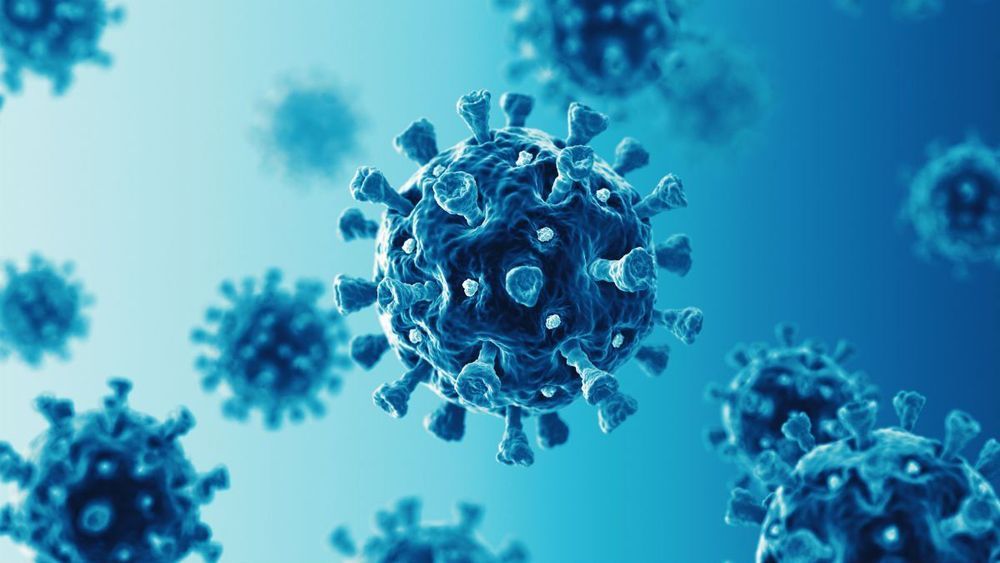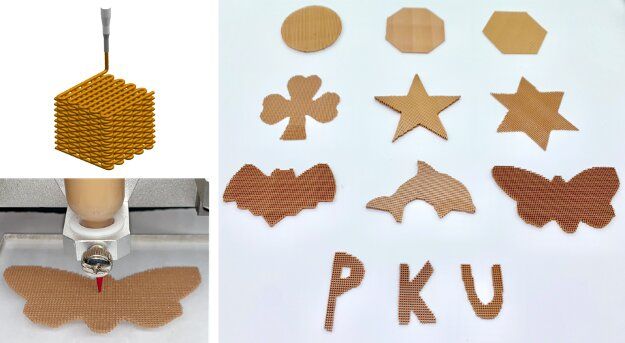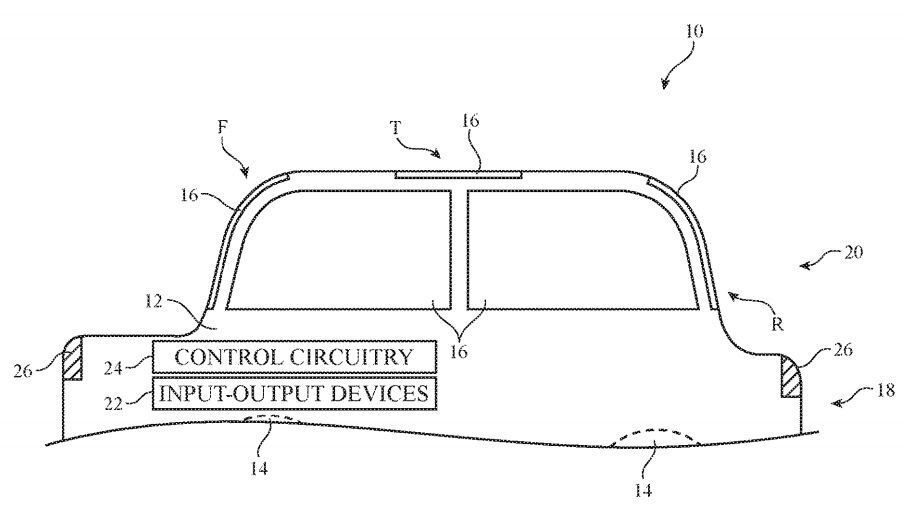
Get the latest international news and world events from around the world.

Stanford University lab repurposes scuba gear into reusable PPE
Bioengineering professor Manu Prakash runs a lab at Stanford University that uses low-cost materials to create effective scientific devices. He returned from a recent vacation with some scuba gear — as well as a cold. While he tested negative for COVID-19, he stayed cautious and self-quarantined for two weeks. During that time, he reworked his snorkel mask into a reusable face shield for healthcare providers by combining it with a medical-grade filter. Dubbed the Pneumask, Prakash and his team tested the device and sent their findings to the FDA, which cleared it as a face shield or surgical mask, but not as a respirator. According to The Washington Post, this decision was made so that the masks could go out to healthcare workers immediately, as clearing the device as a respirator would require more time.
Manu Prakash and his team at Stanford University have turned a standard scuba mask into a reusable medical face mask.

Robots will feed, teach & exercise one in three kids by 2050, expert claims
ROBOTS will raise one in three children in the future, an AI expert says.
Dr Michelle Tempest says the droids will feed, exercise and teach kids.
They will also change nappies and tell stories and artificial uteruses will develop foetuses.
Dr Tempest says that by 2050 parenting will be “entirely optional”.


Space Surveillance Telescope Sees First Light: through US & Australian
In partnership with the Australian Ministry of Defense, the U.S. Space Force’s (USSF) Space and Missile Systems Center’s (SMC) Space Surveillance Telescope (SST) Program recently achieved “first light” on March 5, 2020, reaching a key milestone after it was moved from White Sands Missile Range, New Mexico to Harold E. Holt Naval Communications Station in Western Australia.
“This key Space Domain Awareness, or SDA, partnership builds on the long history of close defense space cooperation between the United States and Australia and has been a cornerstone of our continued alliance,” said Gordon Kordyak, SMC Special Programs Directorate Space Domain Awareness Division chief.
Moving the SST to Australia satisfied a critical objective to improve the broader USSF Space Surveillance Network’s ground-based electro-optical coverage of the geosynchronous space regime. First light is a significant milestone in meeting this objective. It means that course alignment of the telescope optics with the wide field of view camera has been completed to allow the first images of objects in orbit to be seen by the telescope.

Gut microbes influence how rat brains react to opioids
“Like you often have to do in science, we first hit the problem with a hammer to see how the system breaks, then backtrack from there,” Simpson said.
By that she means that in order to determine if the gut microbiome influenced drug addiction, they first needed to compare an organism with a normal gut microbiome to one without. To do that, the researchers gave some rats antibiotics that depleted 80 percent of their gut microbes. All of the rats — those with and without gut microbes — were dependent on the prescription opioid pain reliever oxycodone. Then some of the rats from each group went into withdrawal.
“To me, the most surprising thing was that the rats all seemed the same on the surface,” George said. “There weren’t any major changes in the pain-relieving effect of opioids, or symptoms of withdrawal or other behavior between the rats with and without gut microbes.”
It wasn’t until the team looked at the rats’ brains that they saw a significant difference. The typical pattern of neuron recruitment to different parts of the brain during intoxication and withdrawal was disrupted in rats that had been treated with antibiotics, and thus lacked most of their gut microbes. Most notably, during intoxication, rats with depleted gut microbes had more activated neurons in the regions of the brain that regulate stress and pain (periaqueductal gray, locus coeruleus) and regions involved in opioid intoxication and withdrawal (central amygdala, basolateral amygdala). During withdrawal, microbe-depleted rats had fewer activated neurons in the central amygdala, as compared to rats with normal gut microbiomes.
“It was many months of counting black dots,” Simpson said. “But in the end it became clear that, at least in rats, gut microbes alter the way the brain responds to drugs.”
That shift could affect behavior, she explained, because a decrease in neurons recruited in the central amygdala could result in fewer withdrawal symptoms, which can in turn lead to a higher risk of drug abuse.
As a now-healthy graduate student, Simpson first worked on techniques to visualize molecules in the brain. But she couldn’t shake her interest in the gut microbiome and its connections to the brain.

A new flexible piezoelectric composite for 3D printing
Researchers at Peking University, Southern University of Science and Technology and the University of Jinan in China have recently designed a ceramic-polymer composite that can be used to print complex 3D grid architectures. This composite, first presented in a paper published in Nano Energy, was found to exhibit a number of desirable properties, including high flexibility and a high electromechanical energy conversion rate.
Piezoelectric ceramic materials, such as Pb(Zr, Ti)O3 (PZT) typically have remarkable electromechanical energy conversion capabilities. However, most of these materials are inherently rigid, which makes them far from ideal for the fabrication of flexible electronics.
“Normally, piezoelectric ceramics are brittle, therefore, they are not suitable for integration into flexible electronics directly,” Shuxiang Dong, one of the researchers who carried out the study, told TechXplore. “We wanted to develop a 3D-printed, soft piezoelectric ceramic composite material that is a heat-curable polymer exhibiting mechanical flexibility and a large electromechanical voltage in response to environmental mechanical vibrations or force stimuli. Luckily, we made it, and our composite has great potential to be used for future soft sensors.”

Apple steering towards smart automobile windows
A recent patent filing offers a window into future forays by Apple into automotive design. Apple is exploring artificial intelligence systems that will enable future motorists to enjoy windows that continuously change characteristics as they drive.
Titled “Systems with adjustable windows,” U.S. Patent No. 10,625,580 envisions glass components that control light, reflection and heat conductance based on both user preference and sensory input.
The smart windows would contain multiple adjustable layers sandwiched between two panes of glass that could perform such functions as keeping a cool interior, providing privacy to occupants, allowing viewing through haze and blocking harmful sunlight radiation.

30 Years Later, This Big Boy Fusion Reactor Is Almost Ready to Turn On
Could nuclear fusion finally be right around the corner… in 2035?
The International Thermonuclear Experimental Reactor, or ITER, is a 30-year-old project started by President Ronald Reagan and Soviet leader Mikhail Gorbachev. With tens of billions of dollars on the line, this experimental tokamak fusion reactor—a nuclear fusion plasma reactor where extremely hot, charged plasma spins and generates virtually limitless energy—is one of a handful of extremely costly “miniature suns” around the world.